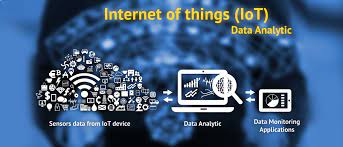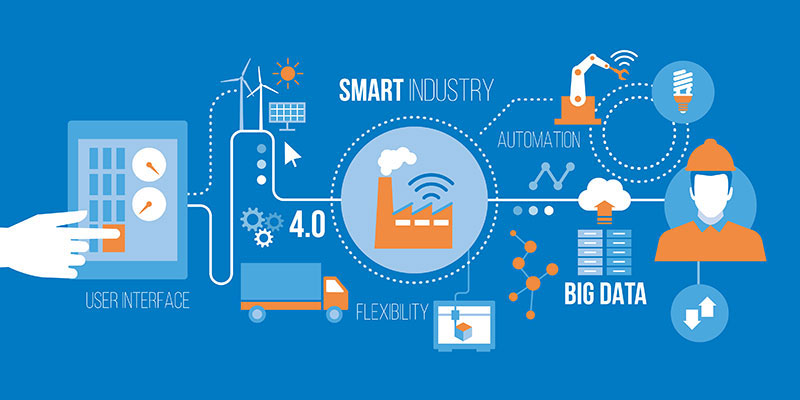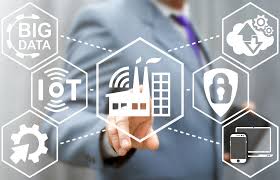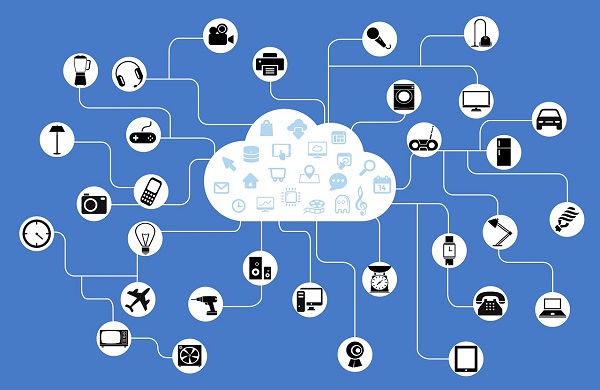Hello!
 The world has witnessed a great crisis due to the COVID-19 pandemic since the advent of 2020.
The world has witnessed a great crisis due to the COVID-19 pandemic since the advent of 2020.
The pandemic has disrupted several industries and businesses including supply chain, manufacturing, marketing, and other core areas of business processes across the globe.
Hence, organizations all around the world are trying to adjust to the situation dictated by the pandemic.
An estimated 70 percent of organizations confirm that they will be either increasing or maintaining the overall spending on digital transformation with help of the leading IoT companies.
The given uncertain time has also made businesses realize the overall potential of cutting-edge technological intervention in day-to-day business processes. For example, IoT business (Internet of Things) has turned out to be one of the most significant technologies for businesses.
 It has served to be the driving force behind the concept of industry 4.0. Notably, an increasing number of organizations are leveraging advanced technology solutions in the wake of the global pandemic.
It has served to be the driving force behind the concept of industry 4.0. Notably, an increasing number of organizations are leveraging advanced technology solutions in the wake of the global pandemic.
In this post, we aim at providing some of the key takeaways about the role of IoT for businesses after COVID-19. If you need to write a paper on relevant IoT news, an experienced essay writer can always give you a helping hand.
Industry 4.0 and Its Potential for Modern Businesses
It is high time to realize the overall importance of industry 4.0 for your business. Before the beginning of the pandemic, it has been leading many industries and organizations to implement the revolutionary “smart” environment across business processes, manufacturing plants, and other sectors.
 Industry 4.0 implies the utilization of automation & intelligence in the respective manufacturing processes while employing high-end technologies including:
Industry 4.0 implies the utilization of automation & intelligence in the respective manufacturing processes while employing high-end technologies including:
- IoT (Internet of Things)
- Artificial Intelligence (AI)
- IIoT (Industrial IoT)
- Big Data
- Cloud Computing
Also going by the name of the Fourth Industrial Revolution, Industry 4.0 is known for its focus on highly optimized, automated, and smarter processes.
How is COVID-19 Accelerating the Use of Industry 4.0?
Ever since the beginning of COVID-19 pandemic, businesses all around the world have started facing some of the greatest challenges like shortage of labor, proper resources, transportation issues, financial crisis, and a constant threat of the virus spreading amongst the workers.
 Some of the ongoing challenges that are faced by businesses all around due to COVID-19 are:
Some of the ongoing challenges that are faced by businesses all around due to COVID-19 are:
- The supply chain industry significantly affected due to closed factories and global lockdown. For improved future conditions, logistic and manufacturing companies are expected to come up with an intelligent plan for bridging the widened gap of the existing demand-supply model.
- The presence of an uncertain economic environment along with social distancing norms and an unbalanced market. Even when things are going to return to normal, these factors are going to change the overall trends, behavior, and consumption post COVID-19.
- Please name this challenge. The following text explains the solution to it, while you first need to give it a name. Smart factories and smart equipment are the need of the hour. However, human intervention is required for fully functional and uninterrupted production.
 Just like switching from physical to digital became unavoidable recently, the ongoing pandemic has given more reasons to adopt Industry 4.0 as well as smarter workflow to allow organizations to be prepared for the future.
Just like switching from physical to digital became unavoidable recently, the ongoing pandemic has given more reasons to adopt Industry 4.0 as well as smarter workflow to allow organizations to be prepared for the future.
How can IoT Help Businesses Mitigate Risks Post COVID-19?
Product owners, manufacturers, and even write my essay companies involved in the supply chain network featuring Industry 4.0 capabilities can look forward to conducting business processes with minimal constraints.
Here are some of the ways in which IoT can help businesses to ensure business continuity both during & post COVID-19:
1. Environment of Smart Manufacturing
The concept of IIoT (Industrial IoT) helps the organizations to increase the overall productivity while ensuring transparency across multiple channels. This can be achieved with the utilization of intelligent, safe, and interconnected devices.
 Industry 4.0 is known for making use of an integrated approach by implementing the following concepts:
Industry 4.0 is known for making use of an integrated approach by implementing the following concepts:
- Remote monitoring of machinery, production setup, and equipment
- Video conferencing for real-time, effective collaboration
- Control systems based on vision for controlling equipment on the basis of specific measures
- Workforce training for ensuring the overall well-being of employees and monitoring activities
- Data-driven equipment control for analyzing & taking specific actions on the basis of measures
- Machine learning software for intelligently performing automated tasks
- IoT-enabled devices and sensors for offering a holistic view of operations
IIoT tools also help companies get a 360-degree overview of the respective demand, supply, and operations while constantly checking for the potential risks & threats.
In turn, this enables the respective manufacturers to ensure continued operations –even when social distancing norms would be in place with the economy shrinking.
2. Remote Collaboration
 The majority of companies out there in the IT industry are following the concept of working from home during the pandemic. On the other hand, the manufacturing industry continues lagging in the implementation of data-driven, automated control systems.
The majority of companies out there in the IT industry are following the concept of working from home during the pandemic. On the other hand, the manufacturing industry continues lagging in the implementation of data-driven, automated control systems.
Through the integration of data-driven and smart technologies into the administration & production environment, manufacturers can look forward to monitoring business processes from anywhere with reduced manpower.
As the supply chain gets disrupted & short-term business plans are no longer working, the most important aspect for manufacturers is merely surviving during the pandemic.
The utilization of real-time data and constant collaboration with distributors, managers, and partners are crucial.
Supply chains or updates work effectively to help manufacturers identify the upcoming risks as well as trends such that they are able to undertake collective steps for handling the crisis effectively.
3. AR & VR for Better Visualization
 To continue with the new normal –self-isolation & social distancing- manufacturers are expected to make use of high-end digital options for conducting day-to-day business operations.
To continue with the new normal –self-isolation & social distancing- manufacturers are expected to make use of high-end digital options for conducting day-to-day business operations.
The adoption of revolutionary AR & VR technologies in the manufacturing environment can help personnel in effective training while performing any maintenance activity on a remote basis.
A majority of the workforce is working from home currently. As such, the adoption of cutting-edge, immersive technologies including Augmented Reality & Virtual Reality, should be regarded as strategically crucial for improved understanding.
Conclusion
 COVID-19 has made business owners rethink their respective business strategies. Moreover, it has also demonstrated the overall potential of the connected, digital world for running businesses smoothly.
COVID-19 has made business owners rethink their respective business strategies. Moreover, it has also demonstrated the overall potential of the connected, digital world for running businesses smoothly.
Crisis-readiness has indeed become a crucial aspect for modern businesses all around the world. This helps reduce the overall costs while increasing speed-to-market and reducing the number of human hours.
Through the combination of data, insights, and analytics, IoT (Internet of Things) is going to be a boon for multiple businesses & industries post COVID-19.
Thank you!
Subscribe to our newsletter! Join us on social networks!
See you!






